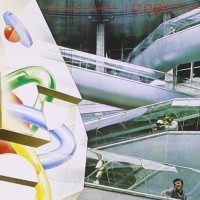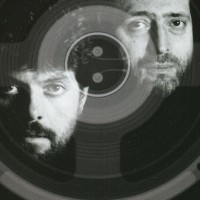Eye in the Sky became the Alan Parsons Project’s third platinum album on the strength of their highest-ever charting single, yet they still somehow stayed essentially anonymous.
“Well, we never felt like pop stars,” the late Eric Woolfson told Team Rock in 2009. “We didn’t have the image for that. So, having a big hit didn’t change anything. We were still anonymous, and very happy to be so. We are the quintessential band that even our biggest fans wouldn’t recognize in the street.”
It didn’t help that a different singer was featured on each single from the album, which arrived in June 1982: Lenny Zakatek (“You’re Gonna Get Your Fingers Burned”), Woolfson (“Eye in the Sky”), Elmer Gantry (“Psychobabble”) and Zombies vet Colin Blunstone (“Old and Wise”). None of them were featured in the standard early-’80s video for MTV, either.
Then again, clips had accompanied singles from the Alan Parsons Project’s previous platinum efforts, 1977’s I Robot and 1980’s The Turn of a Friendly Card – to no avail. Eye in the Sky broke through anyway, likely because it was the rare Alan Parsons Project album devoid of a larger concept. (This is, after all, group who devoted song cycles to things like the work of poet Edgar Allen Poe and architect Antoni Gaudi.)
“Something we had almost become recognized for is the fact that we have always had some form of theme running through the records we’ve done,” Alan Parsons told Ed Sanders in 1999. “At the same time, I felt that it was time to break away from that, especially as we had so much negative criticism, like being pretentious for constantly making concept albums. This time we felt, ‘Let’s just go in and make an album and then maybe at the end decide what it’s all about.’ So, that’s what Eye in the Sky really ended up being – a concept-less album but with a similar format as the previous albums.”
What it lacked in narrative connections, the recording more than made up for in consistency of tone. Of course, the Alan Parsons Project had never shied away from commercial success, having reached the Top 40 in 1977 with “I Wouldn’t Want to Be Like You” and then the Top 20 in 1980 with “Games People Play.” More often than not, however, Eye in the Sky traded hooks for glacial listenability. With the edges completely smoothed out, they emerged with a sort of soft-rock prog.
It wasn’t just “Eye in the Sky,” which became a best-ever No. 3 smash. “Gemini,” featuring a turn by the late singer Chris Rainbow, traversed the same dreamscape, while “Mammagamma” rippled with meditative wonder. “Silence and I” soared with orchestral brawn at its middle, but was still bookended by tender balladry. “You’re Gonna Get Your Fingers Burned,” “Children of the Moon” and “Psychobabble” picked up the pace a bit, and King Crimson’s Mel Collins takes an emotional turn on “Old and Wise,” but not so much that it broke the sense of reverie surrounding this whole effort.
Of course, the Woolfson-voiced title track – inspired, oddly enough, by a trip to a Vegas casino – remains both this album’s calling card and its guiding light. “He had a certain fascination with the hidden cameras that were there watching the tables, taping the games and what have you,” Parsons told Ed Sanders. “It was more than just the hidden cameras. It was also kind of 1984 syndrome. It covers the fact we can never be left to our own devices; we will always be watched.”
Beyond that, the song’s meaning remains rather obscure; yet its importance in setting the tone for the Alan Parsons Project’s most consistent album can’t be overstated.
“Eye in the Sky” was originally paired with the instrumental “Sirius,” which found its own measure of fame on various commercials and – most memorably – as the intro music for the Michael Jordan-era Chicago Bulls. As before, however, it did little to raise the personal profile of any individual in this remarkably faceless band.
“Few people know that was by the Alan Parsons Project,” Parsons told Cary Ginell in 2016, laughing. “I’m not a sports fan, but I am delighted that they used it. The New Orleans Saints also played it for their Super Bowl walk-on [in 2010], and even Donald Trump used it [this year] – without permission, I might add, but our publishers put a stop to that.”
Good thing Alan Parsons didn’t get his way: He originally hated “Eye in the Sky.”
“I had to fight him all the way to record this, and even then he was convinced we had made a huge mistake,” Woolfson told Team Rock. “He famously bet guitarist Ian Bairnson that it would be a huge flop as a single. Alan paid up when he knew it was going to be successful. I think Ian framed the check! But the fans embraced the song, and the record label loved the fact we could have a hit, despite our seemingly low profile.”
- The Bright Spots in George Harrison’s Troubled ‘Dark Horse’ Era - December 29, 2024
- The Pink Floyd Deep Cut That Perfectly Encapsulates ‘The Wall’ - November 29, 2024
- Why Pink Floyd’s ‘The Endless River’ Provided a Perfect Ending - November 11, 2024



